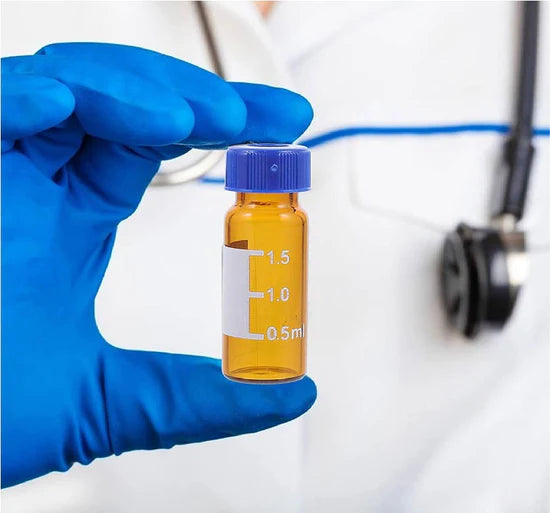
The Impact of Packaging on Product Integrity: How Glass Vials Ensure Safety
Share
When it comes to packaging, especially in industries like pharmaceuticals, beauty, and chemicals, the integrity of the product inside is paramount. Glass vials are widely regarded as one of the best packaging solutions due to their ability to protect products from contamination, degradation, and exposure to external elements. But what exactly makes glass vials such a reliable choice for ensuring product safety? Let’s explore how glass vials maintain product integrity through superior sealing and resistance to contaminants.
1. Airtight Sealing for Maximum Protection
One of the standout features of glass vials is their ability to provide a tight, secure seal, ensuring that products are protected from air, moisture, and other environmental factors. This is especially important for products that are sensitive to oxygen or humidity, such as pharmaceuticals, essential oils, and chemicals.
Glass vials can be paired with various closure types—such as screw-thread caps, tamper-evident caps, and polyseal caps—that create an airtight barrier, preventing leaks or contamination. This level of protection ensures that the product inside maintains its original quality, effectiveness, and potency for an extended period.
2. Resistance to Contaminants
Glass is naturally non-porous, meaning that it doesn’t absorb liquids or gases, making it highly resistant to contamination. Unlike some plastic containers that can leach chemicals into the product, glass vials provide a clean, inert environment where the product remains pure and unaffected by external factors.
For industries that require absolute cleanliness and sterility—such as pharmaceuticals, biotech, and healthcare—this resistance to contaminants is a critical feature. Glass vials protect sensitive products from bacteria, dirt, and other harmful contaminants that could compromise their safety and effectiveness.
3. Chemical Stability and Inertness
Another key reason glass vials are favored for product packaging is their chemical inertness. Glass, particularly Type I Borosilicate Glass, is chemically stable and doesn’t react with the contents inside. This makes it ideal for storing sensitive compounds such as medications, biological materials, and hazardous chemicals.
The lack of interaction between the glass and the product ensures that the product’s purity and stability are maintained, reducing the risk of unwanted chemical reactions that could degrade or spoil the product.
4. UV Protection for Light-Sensitive Products
Certain products, such as essential oils, serums, and pharmaceutical compounds, are sensitive to light exposure, particularly UV rays. Prolonged exposure to UV light can cause these products to degrade, lose their potency, or change color. Glass vials—especially those in amber, green, or cobalt blue—provide excellent UV protection, shielding light-sensitive products from harmful rays and preserving their quality.
By blocking UV light, glass vials help ensure that products maintain their effectiveness over time, which is particularly important for items with extended shelf lives or that require stability under varying storage conditions.
5. Durability and Strength
While glass is often associated with fragility, modern glass vials—especially those made from borosilicate glass—are incredibly durable and resistant to breakage. These vials are designed to withstand extreme temperatures, high pressure, and rough handling, ensuring that the product inside remains safe during transportation, storage, and use.
This durability also helps protect the product from accidental damage or spills, offering peace of mind for industries that handle hazardous or high-value products.
6. Tamper-Evident Closures for Security
In industries where product safety and security are paramount, tamper-evident closures on glass vials provide an extra layer of protection. These closures offer visible evidence if a product has been opened or compromised, ensuring that customers and end-users can trust that the contents inside remain uncontaminated.
Tamper-evident caps are commonly used in pharmaceuticals, nutraceuticals, and beauty products, where consumer trust is critical. By pairing glass vials with these secure closures, businesses can confidently deliver products with assured integrity.
Conclusion
Glass vials play a critical role in maintaining product integrity, offering airtight sealing, resistance to contaminants, and protection from light exposure. Their chemical stability, durability, and ability to pair with tamper-evident closures make them the best choice for industries that prioritize safety, quality, and longevity. Whether you're storing pharmaceuticals, essential oils, or hazardous materials, glass vials ensure that your product remains pure, effective, and secure from production to end-use.
